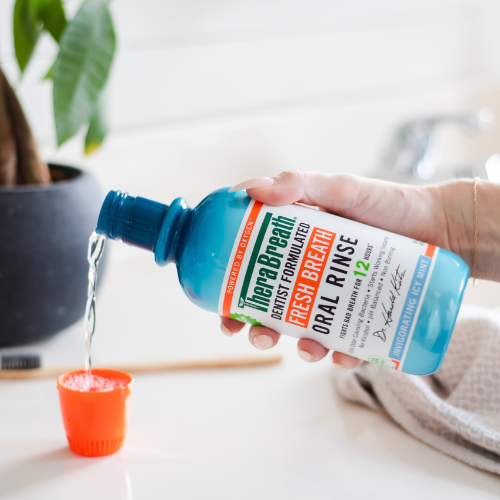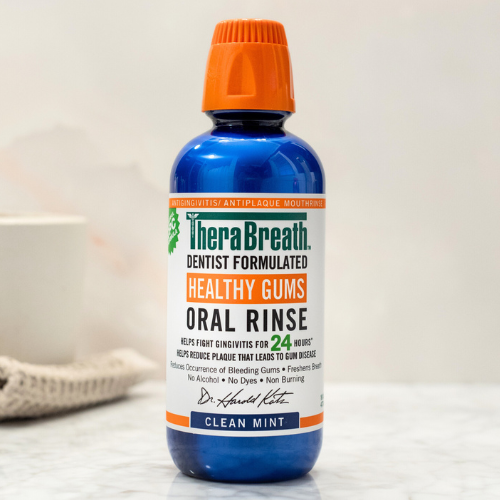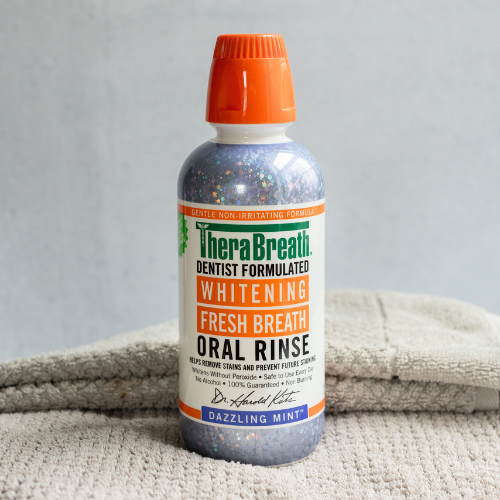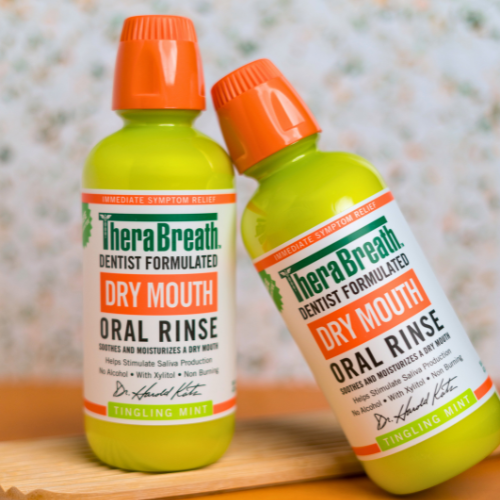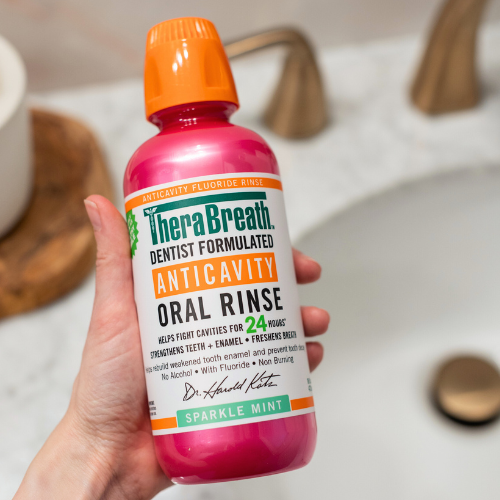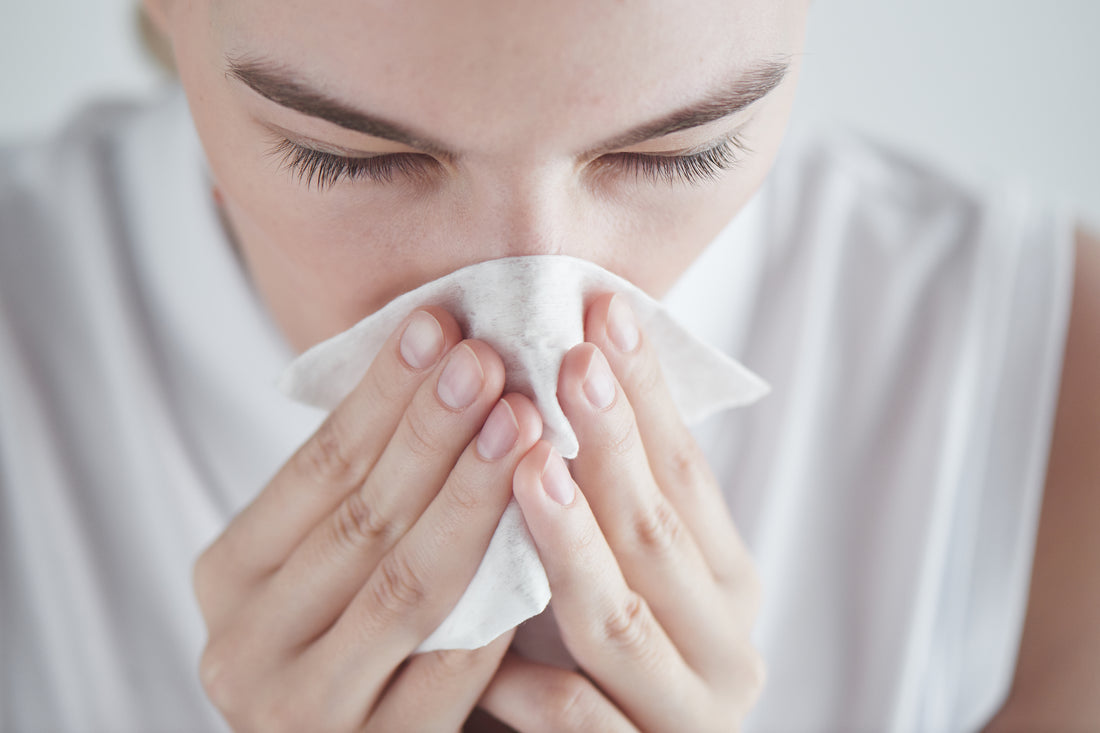
Post-Nasal Drip Remedies
Share
Mucus helps keep the body protected from infection and bacteria, so it is essential. Normally, mucus is unnoticeable because it is so thin. Common colds, respiratory flu, and allergies can cause an increase in phlegm production, making mucus more apparent and discomforting.
While post-nasal drip is common, it can be a big nuisance. Post-nasal drip is caused by excessive mucus or especially thick mucus dripping into the back of the throat. This constant dripping causes frequent throat clearing, which can lead to several other problems. Many post-nasal drip remedies can help eliminate excessive mucus and dry it up to alleviate uncomfortable symptoms.
Post-Nasal Drip Causes & Symptoms
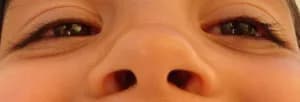
Common causes of post-nasal drip include colds, respiratory flu, sinus infections, nasal allergies, food allergies, chemical fumes, and smoking. Sometimes, a person can develop post-nasal drip from living in an arid climate or from dry air in winter months. Pregnancy, birth control pills, swallowing problems, and gastric reflux disease (GERD) are additional underlying causes.
The most common symptom is the dripping sensation in the back of the throat caused by excessive mucus. This can lead to a chronic cough, sore throat, choking, and feeling hoarse. When left untreated, excess mucus can block the Eustachian tube between the nose and ear, resulting in ear infections and considerable pain. Untreated post-nasal drip can also result in sinus infections. It is important to start treatment right away before post-nasal drip gets worse and leads to more serious problems.
Post-Nasal Drip Medications
It is important to note, while antihistamines and decongestants may clear up excessive mucus, they can result in dry mouth, which also needs to be treated. Many medications once available only by prescription can now be purchased over-the-counter. Non-prescription remedies typically used for this type of problem include the following popular medications.
- Zyrtec
- Claritin
- Flonase
- Benadryl
- Chlor-Trimeton
- Afrin Nasal Spray
- Robitussin
- Vicks
Post-Nasal Drip Remedies
People who suffer from post-nasal drip have several choices when it comes to treatment. You can try over-the-counter medications, seek medical advice to receive a prescription drug or nasal spray, or try any number of easy remedies. If you suffer from post-nasal drip and wish to treat it immediately without leaving home, the following remedies can help soothe your symptoms.
Gargling: Use salt water to help soothe a sore throat associated with post-nasal drip. The warm water and salt also help clean the mouth and clear it from the excessive mucus dripping down the back of the throat. Simply add about a 1/2 teaspoon of salt in a cup of lukewarm water and gargle a few times with the mixture.
Home Nasal Spray: Make your own nasal spray with baking soda, warm water, and salt. You will also need to have a nasal syringe to squirt the mixture up your nostrils. Add a pinch of salt and baking soda to a cup of water to make an effective solution. Irrigate by holding your head over the kitchen sink and using a syringe, small bottle, or neti pot, squirt the solution into your upper nostrils. Remember to keep your mouth open. Blow your nose and repeat. If you find this too cumbersome, consider using an irrigation system. The one we recommend is the HydroPulse® Nasal Sinus Irrigation System.
Keep Your Home Clean: Dust, dust mites, mold, pollen, and animal dander easily accumulate and irritate the mucous membranes in the nose. If you are having trouble with post-nasal drip, it is a good idea to clean your house thoroughly by vacuuming and dusting a few times a week. Freeing your home of dust and allergens will prevent allergies from flaring up. Mold growth can be a major problem for those suffering from allergies and post-nasal drip, therefore you need to clean moist kitchen and bathroom surfaces.
Drink Plenty of Fluids: While you need to stay away from milk since it will make mucus thicker, you should stay well hydrated with a lot of water and some fruit juice.
Avoid Certain Foods: Many foods can trigger post-nasal drip, especially dairy products such as milk, cheese, and ice cream. Instead, opt for a balanced diet of grains, fruits, vegetables, and lean meats.
Go Gluten-Free: A gluten allergy can lead to post-nasal drip. If you suspect an allergy to gluten or wheat is causing post-nasal drip, try giving up gluten for a few days. It may seem challenging, but it can greatly alleviate the uncomfortable symptoms of post-nasal drip. Of course you should be tested if you experience serious digestive or other symptoms indicative of a gluten allergy.
Tea and Honey: To help ease your sore throat, tea with honey will suffice. The combination is soothing to the throat and can help ease post-nasal drip.
Honey and Cinnamon: These two ingredients work together to fight post-nasal drip because they both contain natural antibacterial properties. Since post-nasal drip is often caused by an upper respiratory infection, these properties can hinder the growth of the bacteria without harsh side effects. When combining this mixture, it's best to use organic honey harvested locally because it contains allergens from your area. Although this may sound counterproductive, when you ingest allergens in small doses, the body builds up immunity to them. Organic cinnamon is also ideal, although regular cinnamon found in all grocery stores will suffice. If you're suffering from post-nasal drip, make this mixture and take one tablespoon twice a day.
Lemon: One of the many health benefits of lemon is its ability to eliminate post-nasal drip. Add a squeeze of lemon juice to a glass of water each morning or to a hot cup of water. If you're not a fan of lemon water, add a bit of juice to a hot cup of tea to reap its soothing benefits. The acid in the lemon break downs the mucus built up in the nasal cavities while also soothing the throat.
Menthol: Using menthol can help break up mucus and soothe a sore throat. You can find menthol in lozenges, teas, and creams. Menthol also helps clear stuffy noses which keeps nasal passages free from excessive amounts of mucus.
Keep the Air Clean and Moist: Post-nasal drip can be caused by dry air, so in order to help prevent post-nasal drip from occurring or to ease its severity, it is key to keep the air clean. Use air filters/purifiers to clean the air from allergens and a humidifier to moisturize it. This provides your nasal passages with healthier, easier to breathe air.
Take a Shower: Taking a warm, steam-producing shower can help break up mucus. You might try turning the shower on to hot, sit in the bathroom, and close the door to allow the room to fill with steam. Do not get in the shower with the hot water turned on.
Homeopathic Ingredients: Try using homeopathic ingredients including Kali mur to help clear up mucus. Kali mur, also known as kalium chloratum or potassium chloride is most commonly used to help treat congestion. This comes in tablet form and helps alleviate post-nasal drip and the thick mucus and annoying congestion associated with it.
TheraBreath offers a variety of highly effective products to help eliminate post-nasal drip and associated issues like bad breath and dry mouth, including the following.
When to Call a Doctor
It's crucial to know when post-nasal drip moves from an annoyance to urgent medical condition. If the discharge is not yellow or white (e.g. tinged with blood), smells bad, comes after a blow to the head, or just from one side of the nose, consult a doctor promptly. Blockage of a single nostril in children is often the result of putting something they shouldn't up their nose, like a toy. Mucus accompanied by fever and wheezing lasting more than 10 days indicates a bacterial infection, which requires professional attention.
These statements have not been evaluated by the Food and Drug Administration. These products are not intended to diagnose, treat, cure, or prevent any disease. Always seek the advice of your physician or other qualified health provider with any questions you may have regarding a medical condition. Never disregard professional medical advice or delay in seeking it because of something you have read on any website. If you think you may have a medical emergency, call your doctor, go to the emergency department, or call 911 immediately.
